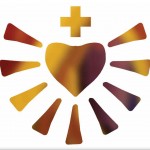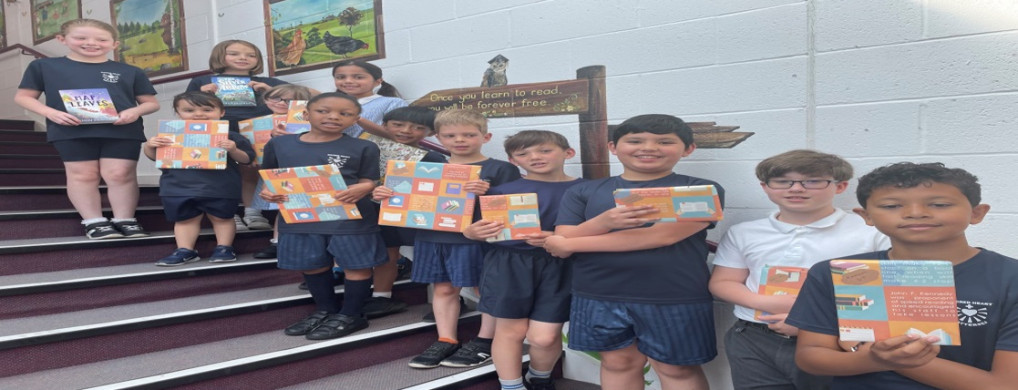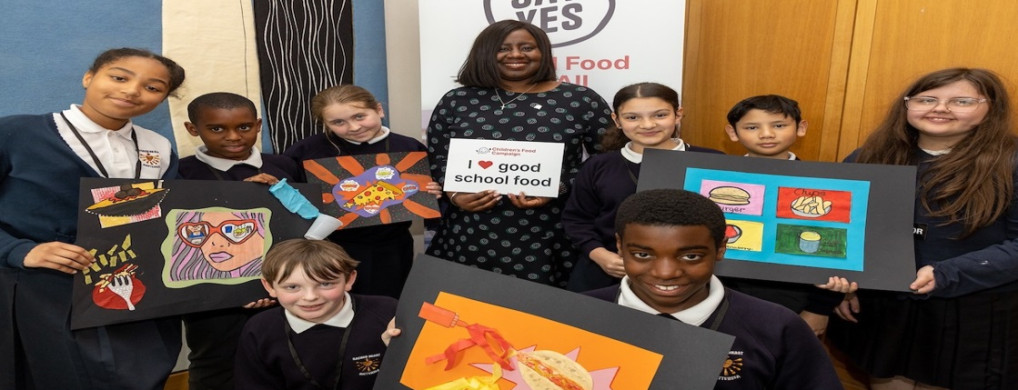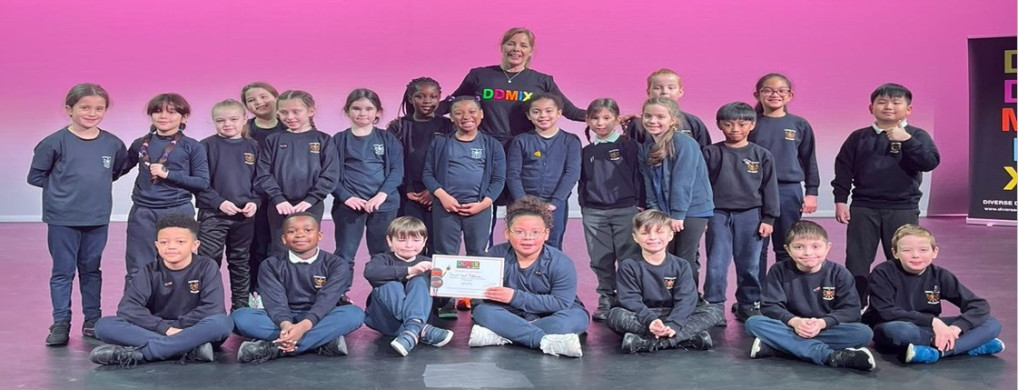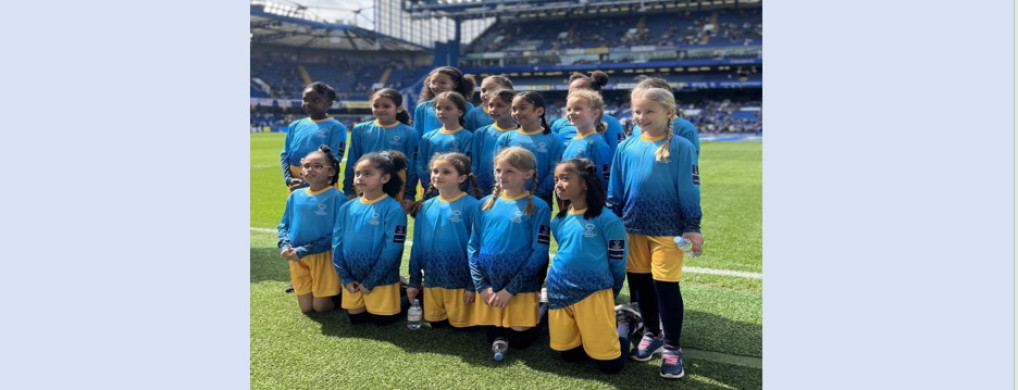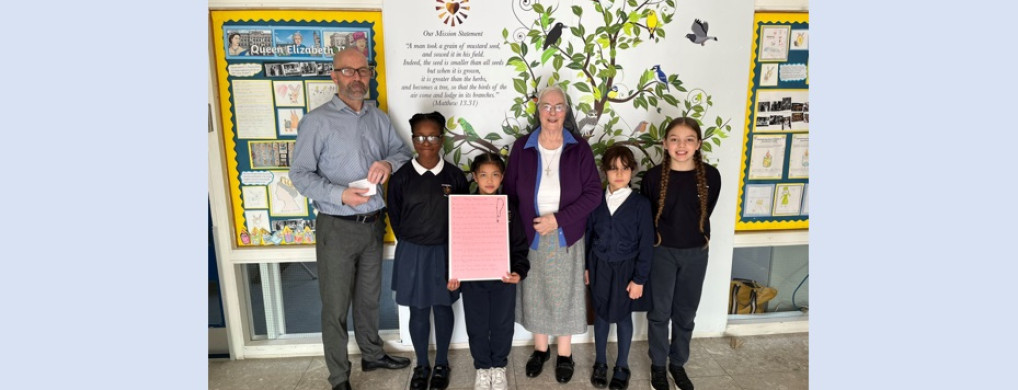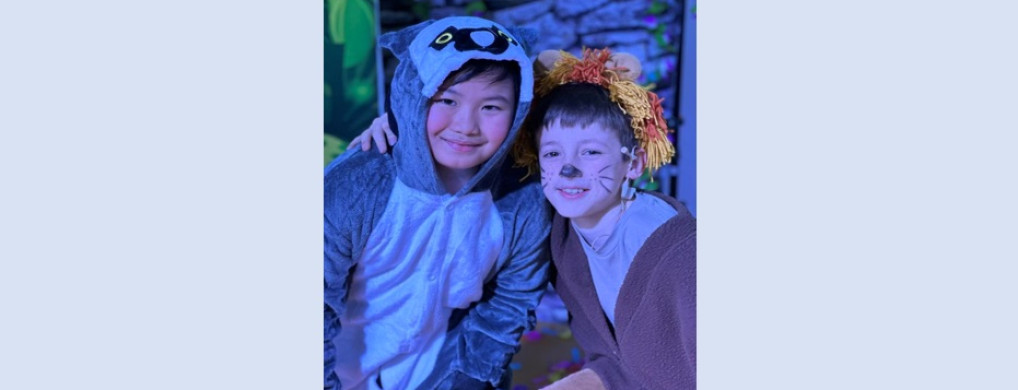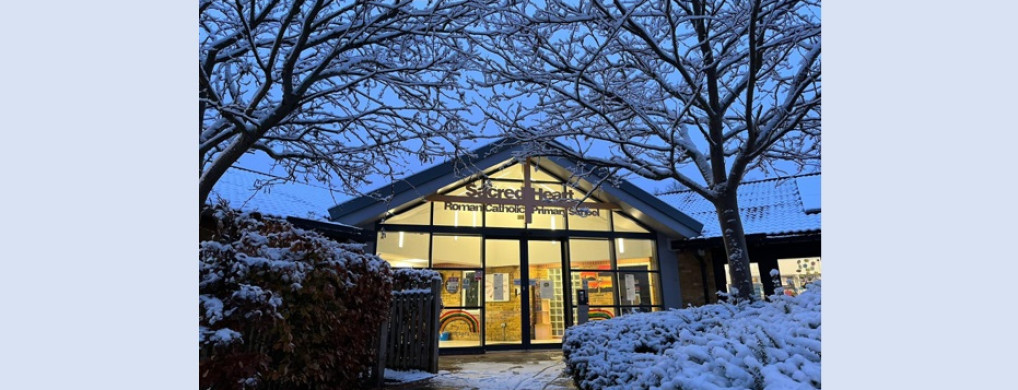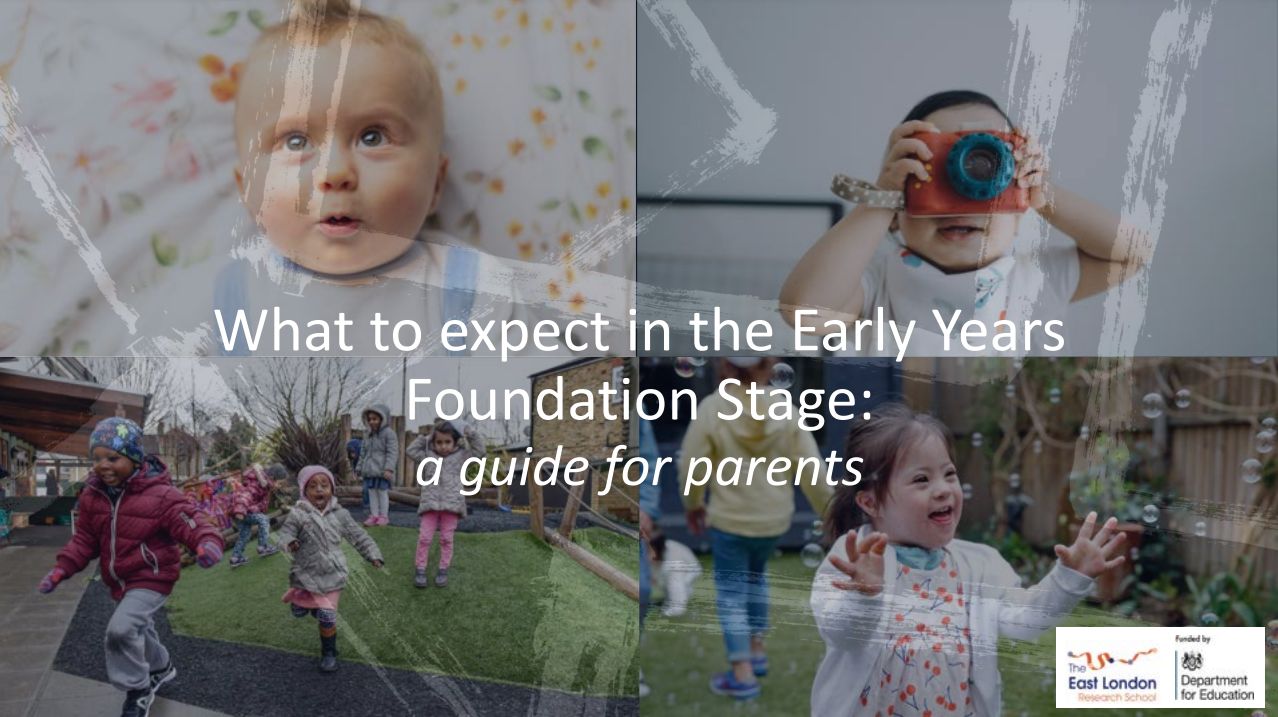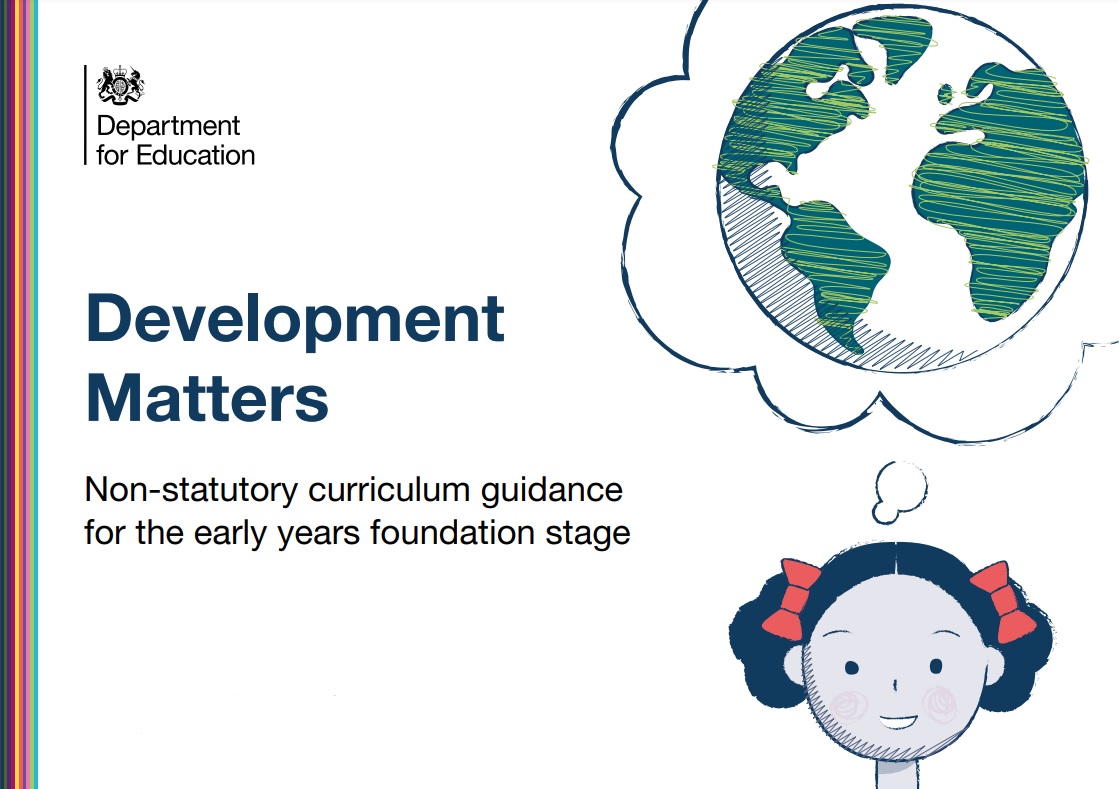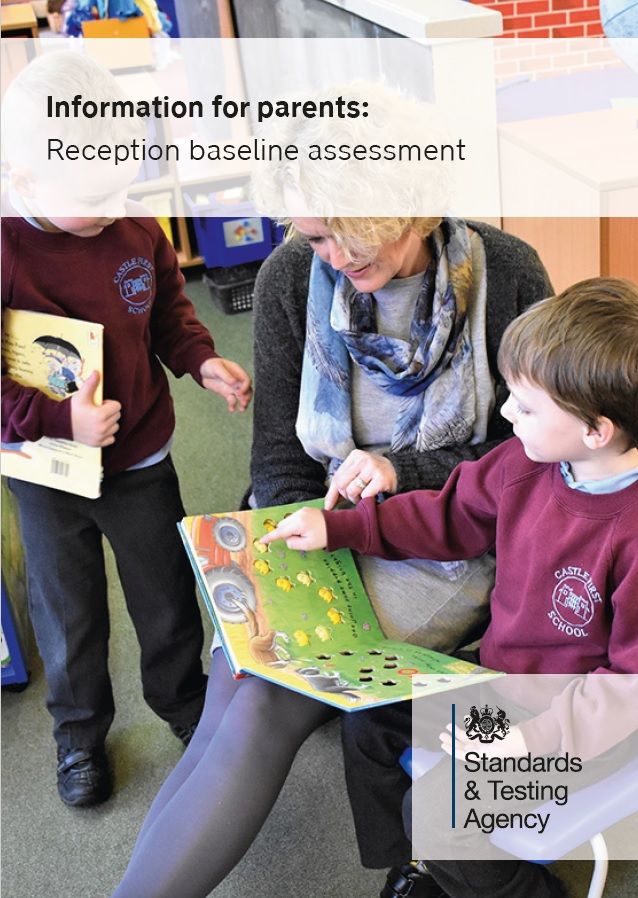Early Years Foundation Stage
“Every Child deserves the best possible start in life and the support that enables them to reach their full potential.”
For Parents Guide on What to Expect in EYFS please click on the image below.
The Statutory Framework for the Early Years Foundation Stage
The Early Years Foundation Stage applies to all children from birth until the end of the Reception Year. In Sacred Heart School children may join our Nursery on a part time morning or afternoon basis or on a full-time basis. Children will usually join our Nursery shortly after their third birthday. Children usually continue their Nursery education for between three and five terms.
Children join the Reception classes during the academic year in which they will turn five. Entry is not staggered and all children join the Reception classes in September. Application to the Reception classes is made separately to that of the Nursery, in accordance with Government policy and procedure; therefore our Reception classes are usually made up of children transferring from other nurseries within the borough as well as from our own.
15 Hours
Currently all part time nursery children are entitled to 15 hours of education per week. We ensure that all families are able to take up their entitlement by offering each part time child one day per week full time at Nursery. Parents may take up this opportunity either at the beginning of the academic year or when they feel their child is ready to spend a full day in school.
The EYFS is based upon 4 Overarching Principles:
- A Unique Child
- Positive Relationships
- Enabling Environments with strong partnerships.
- That children develop and learn in different ways and at different rates.
In line with our Mission Statement, we at Sacred Heart Primary School aim to support children to learn and develop in an environment within which Christian values are central to and celebrated, and where each child is loved, appreciated and affirmed, recognising that every child is a competent learner who can be resilient, capable, confident and self-assured. We recognise that children develop in individual ways and at different rates. Children’s attitudes and dispositions to learning are influenced by feedback from others; we use praise and encouragement, rewards and celebration assemblies to promote a positive attitude towards learning.
Nursery 30 HOURS – From September 2018
From September 2018 school will no longer be funding full time places for Nursery places from school budget. The school will offer either 15 or 30 hours a week nursery education. More information as to how you can apply for 30 hours free childcare and what you will need to do to qualify will be available from our school office, or can be found in our EYFS policy, which is available on the website.
A Unique Child – Inclusion in the Foundation Stage
At Sacred Heart we focus on each child’s individual Learning, Development and Care.
We value the diversity of individuals and embrace differences. All children, families and staff are valued within the school. Partnership working underpins successful delivery of the EYFS in a number of different ways.
At Sacred Heart we ensure that:
- Where children have received education and care in more than one setting, practitioners ensure continuity and coherence by sharing relevant information with each other and with parents.
- Foundation Stage practitioners aim to develop positive relationships and strong partnerships with parents to ensure early identification of children’s learning needs and to ensure a quick response to any area of particular difficulty. We recognise that parents and families are central to a child’s well being and practitioners should support this important relationship by sharing information and offering support for learning in the home.
- Practitioners work with professionals from other agencies, such as local and community health services, or where children are looked after by the local authority, to identify and meet needs and use their knowledge and advice to provide children’s social care with the best learning opportunities and environments for all children.
In the EYFS we set realistic and challenging expectations that meet the needs of our children.
We aim to meet the needs of all our children:
- We plan activities which are differentiated to ensure all children are able to succeed. This includes support for children with English as an additional language, special educational needs. We plan activities which will provide challenge through sustained shared thinking.
- We recognise children’s individual learning styles is key and when planning learning experiences and practitioners try to ensure all learning styles are incorporated.
- We plan opportunities that build upon and extend children’s knowledge, experience and interests, and develop their self-esteem and confidence.
- We provide a range of opportunities to motivate and support children to help them learn effectively.
- We provide a safe and supportive learning environment in which the contribution of all children is valued.
- We use resources which reflect diversity and are free from discrimination and stereotyping.
- We assess children’s progress, learning and development carefully and use our assessments and observations to plan a broad and balanced curriculum which allows the individual child to flourish.
At Sacred Heart we strive to ensure all children feel safe and secure. We aim to educate children and help them to understand that there are behaviour expectations and why boundaries exist. We support children to develop strategies for managing their own and other’s behaviour. Children should be allowed to take risks, but need to be taught how to recognise and avoid hazards.
Positive Relationships
At Sacred Heart we recognise that parents are children’s first and most enduring educators and that when parents and practitioners work together the results have a positive impact on children’s development and learning.
- We provide a welcoming atmosphere with approachable staff to create effective communication. We do this through our Nursery Welcome meeting, Reception Welcome meeting and ‘stay and play’ days. We also hold a FS BBQ in the autumn term to welcome all parents and children to our Foundation Stage on an informal basis.
- We talk to all parents on an individual basis before their children start school in order to find out about our children and families and provide information on a 1:1 basis.
- We make ourselves available to talk to parents on an informal basis each day and are happy to arrange appointments for more in depth discussions.
- Twice a year we have a formal meeting time between parents and teachers to discuss children’s learning and development, share children’s profiles and identify next steps.
- At the end of the academic year we provide parents with a written report about their child’s learning, development, interests, achievements and targets.
- We work with parents to obtain information about their child’s learning and development within the context of the home. Parent’s observations are valued and feed directly into the assessment process.
- We provide ‘drop in’ sessions for parents where they can observe practitioners teaching phonics and provide materials to enable parents to support their children at home.
- We hold literacy and mathematics family learning events each year.
At Sacred Heart all staff involved with the EYFS aim to develop good relationships with all children, interacting positively with them and taking time to listen to them. All children are allocated a key person (usually the class teacher) and parents are made aware of whom their child’s key person is.
Enabling Environments
At Sacred Heart we recognise that the environment plays a key role in supporting children’s development and extending their knowledge and understanding. This begins with careful observation, evaluation and assessment of children to identify individual children’s learning and development, interests and their next steps for learning. This in turn will inform planning for an effective and relevant curriculum.
In the Foundation Stage a range of assessments are gathered by all practitioners to provide as complete a picture as possible, these include:
- Anecdotal Observations
- Incidental Observations
- Timed Observations
- Work Samples
- Photographs (see Welfare Policy for further guidance)
- Videos and Voice recordings (see Welfare Policy for further guidance)
- Discussions amongst members of the FS team.
- Discussion with parents and carers and observations made by parents.
Assessment information is gathered by all members of the team and this is stored within the child’s individual learning profile or within their ‘Learning Journey, which they take home as a memento of their time in the EYFS at the end of the Reception year.
Baseline information is collected at the end of the child’s first half term in school and learning and development is then tracked throughout the Foundation Stage to ensure continuity and progress and to identify any areas of development that may require further support.
All information gathered whilst a child is in the Foundation Stage is used to inform judgements made on the EYFS Profile which are made throughout the Reception Year and completed by the end of the Reception Year. EYFSP results are submitted to the local authority in July and individual children’s progress is shared with parents via a written report.
Medium term plans are based around a theme, usually beginning with, ‘Ourselves’ in September. Once children have settled into the Nursery or Reception subsequent MTPs are based around children’s learning and development needs and interests. Frameworks for weekly plans are taken from the MTP; however we aim to be flexible, reviewing planning on a daily basis and adapting where necessary to meet the needs of the children.
We recognise all children as having individual learning needs and styles and work to provide an environment which is stimulating and motivating. We want children to feel safe, secure and happy to explore and learn. Equal emphasis is given to both indoor and outdoor learning and we plan weekly learning opportunities covering all learning areas for both our indoor and outdoor classrooms. There are areas where the children can be active or be quiet; the classrooms are organised into learning areas and children are encouraged to explore independently using all of their senses and to access equipment and materials for themselves.
Learning and Development
At Sacred Heart we recognise that all children are individuals, developing in different ways and at different rates. We recognise that active learners need to have some independence and control over their learning to keep their interest and develop their creativity. Children are encouraged to make decisions about their learning and are introduced to the concept of self-assessment. Strategies for self-assessment are extended as children progress through the Foundation Stage and children are encouraged to identify what they enjoy and/or are doing well at, what they would like to learn next and what they may need to do in order to achieve their goals.
Creativity and Critical Thinking
Adults will reflect in their practice the different ways that children learn:
- Playing and Exploring
- Active Learning
- Creating and Thinking Critically
We recognise that children have to experience play physically and emotionally and aim to ensure that there is an appropriate balance between child-led and teacher-led activities. They need time to explore, with others or on their own and to be able to build ideas, concepts and skills and to make connections in their learning and lives. Children need time to rehearse and practise their skills; they need to be given time to sustain and extend their learning and be supported to develop their ideas through opportunities for sustained shared thinking with other children and practitioners.
The EYFS is made up of 7 areas of Learning and Development.
The 3 Prime Areas of Learning and Development:
- Communication and Language
- Physical Development
- Personal and Social Development
The 4 Specific Areas of Learning and Development:
- Literacy
- Mathematics
- Understanding the World
- Expressive Arts and Design
In each area there are Early Learning Goals (ELGs) that define the expectations for most children to reach by the end of the EYFS. At the end of the Foundation Stage (the educational year in which the child turns five) children’s learning and development will be assessed against the early learning goals, defined as either, emerging, expecting or exceeding the ELGs. Parents will be provided with a written report highlighting their child’s achievements at the end of the summer term.
For Development Matters please click on the image below.
The Reception Baseline Assessment
The Reception Baseline is a statutory assessment that all Reception age children will take part in. It is a quick and very child-friendly assessment, which takes place in the first six weeks of starting school and gives us a ‘snapshot’ of your child’s ‘starting point’ in school. This information will be used by the Department of Education to track your child’s progress from Reception to Year 6.
For information for Parents Reception Baseline Assessment please click on below image.
Please click here for The Typical Themes and Texts
We look forward to welcoming you, your child and your family to the Early Years Foundation Stage at Sacred Heart, a place where young children develop a love of learning and succeed.
